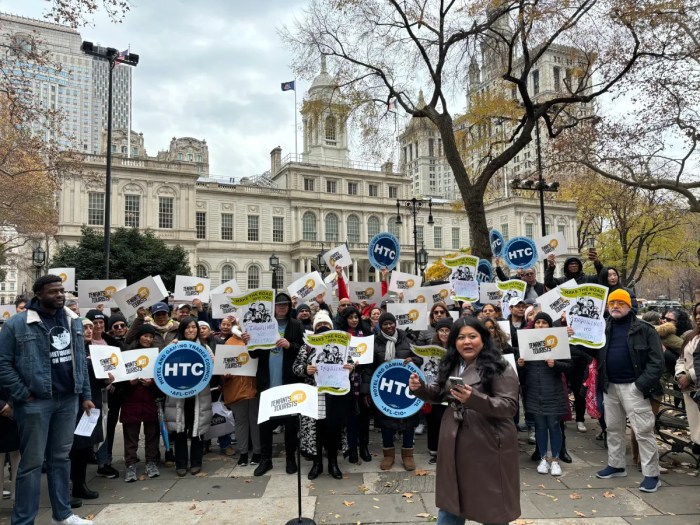By Kelsey Durham
State Sen. Tony Avella (D-Bayside) joined a state environmentalist group last week to present new evidence about the dangers of hydrofracking and to urge Gov. Andrew Cuomo to outlaw the practice in New York.
Members from Environment New York, which advocates for water, energy and nature conservancy, sat beside the senator in his Bayside office last week as they introduced a booklet titled “Shalefield Stories,” a collection of testimonies gathered from residents in Pennsylvania who say they were directly affected by hydrofracking that began across the state as early as 2001.
The stories detail what opponents of hydrofracking say are the dangerous results of the process, which involves drilling into the ground to extract natural gases and oils from shale formations.
In the pamphlet, 19 families talk about the side effects they say they have endured since hydrofracking began in their communities, causing chemicals to leak into drinking and bath water, according to the book.
As a result, the residents testified to experiencing a variety of symptoms such as headaches, vomiting, skin infections and even paralysis or death, in the more severe cases.
As New York prepares to hear a decision from Cuomo on hydrofracking, expected in the upcoming weeks, Environment New York said the agency hopes the release of this newest evidence against the process will shed a new light on why they believe it should be outlawed.
“Their experiences come to us at a critical time,” said Heather Leibowitz, director of Environment New York. “This reinforces that if anyone still doubts the damage hydrofracking can do, all you have to do is look next door to Pennsylvania. We urge our legislators to finally ban hydrofracking and close the door on this dirty process.”
Dating back to his time in the City Council, Avella has introduced several bills designed to regulate hydrofracking across the state, including one nicknamed “CJ’s Law,” named after 23-year-old Pennsylvania resident CJ Bevins, who was killed while operating a forklift on a drill site in Smyrna, N.Y., in 2011.
Avella said the current hydrofracking process followed in New York contains little or no regulations that protect workers and contended there are few requirements that call for regular assessments of the health impacts caused by the drilling.
“When I’m in Albany and you hear these stories of people, it means a lot more to legislators,” Avella said. “I think we all agree that this should be enough to say no and to ban this once and for all. We could be a leader on this issue and send the message to the rest of the country that it’s way too dangerous and that the damages far outweigh the benefits.”
Avella said some of the benefits touted by supporters of hydrofracking include revenue for the state and the creation of jobs needed to maintain the work sites, but he also said the figures he has seen in Albany are drastically different from those put forth by proponents.
He also said he does not believe the few jobs that would be created would actually be given to New Yorkers because the skill set needed for the process is found in workers who hail from other states where drilling work is more common.
Avella said he recently visited the community of Minisink, N.Y., whose residents also say they have been adversely affected by hydrofracking taking place in their area, including a sharp drop in property values. As the state awaits Cuomo’s decision on whether to keep allowing the practice, Avella said he will continue to speak out in opposition and make sure the dangers are known.
“Many of us feel that hydrofracking is just not the way to go,” he said.
Reach reporter Kelsey Durham at 718-260-4573 or by e-mail at kdurham@cnglocal.com.




































